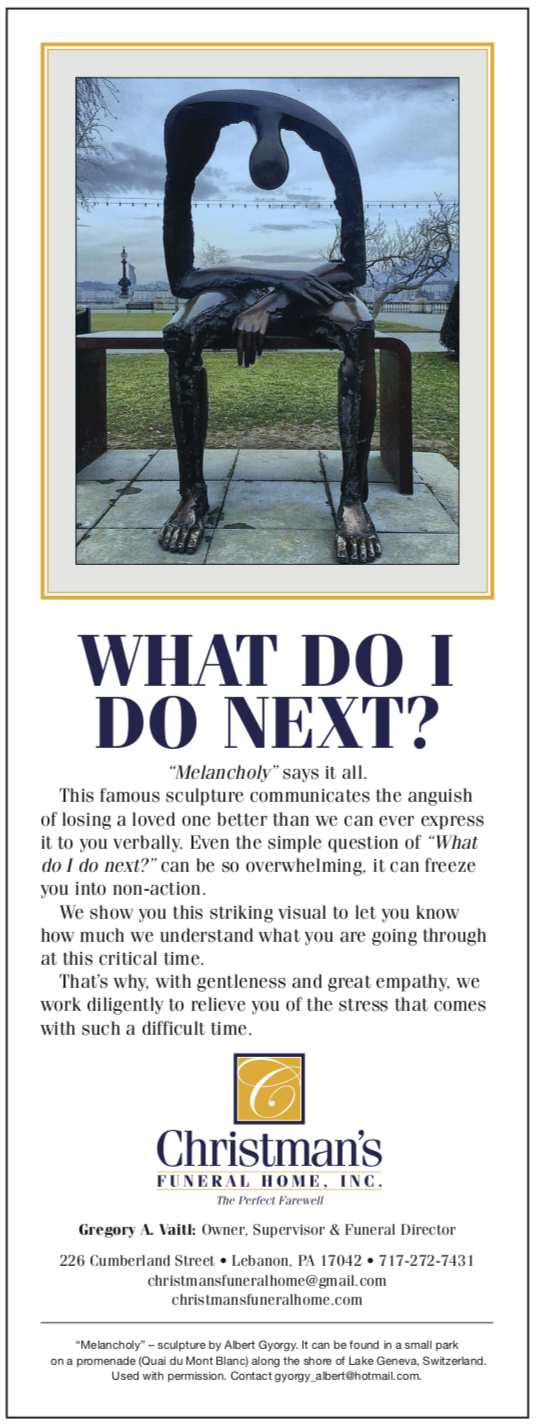This post is paid advertising by Christman’s Funeral Home.
Death that appears outside of the norm can affect your grieving. We call this Complicated Grief (CG). It happens when someone close to you has died in a sudden or unexpected way. It becomes even more complicated today, with the reality of COVID-19 and the safety guidelines that we must all follow inherent in the decision-making process.
That aside, here are some situational examples we have faced and can use our experience to serve you.
- Parents losing a child, or a lover losing a significant other. They display complicated grief. In these cases, grief is stronger and harder to heal from than normal grief. Each stage of the 5 stages of grief can take years just to get past one. CG prevents you from accepting the passing of your loved one and keeps you focused on the deceased and the circumstances.
- If the coroner gets involved, they can request further testing like a toxicology report or an autopsy depending on what they deem necessary. The results are time consuming, which prolongs the period when the focus is on the cause of death, rather than a healing process.
- Grieving will be more severe in parents who lost a child at any age, from stillborn to suicide when older. The “unnatural” circumstances of the death can lead to strain and anxiety and trust issues that contribute to depression, adding other barriers to healing. Discussion can be difficult.
Professional help may be needed in order to get a diagnosis for CG, and should be considered. Be aware that you are not alone. By surrounding yourself with a support system will give you a better chance to heal and grow stronger.















